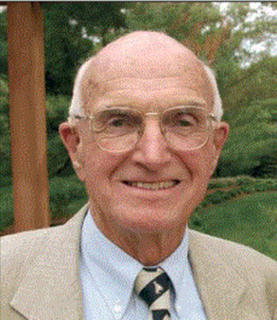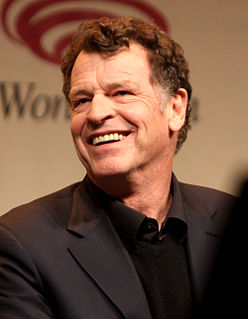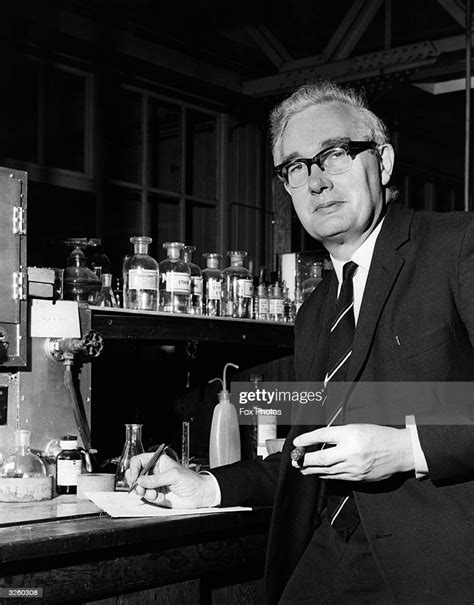Top 1200 God And Science Quotes & Sayings - Page 3
Explore popular God And Science quotes.
Last updated on April 17, 2025.
Alas, Islam turned against science in the twelfth century. The most influential figure was the philosopher Abu Hamid al-Ghazzali, who argued in The Incoherence of the Philosophers against the very idea of laws of nature, on the ground that any such laws would put God's hands in chains. According to al-Ghazzali, a piece of cotton placed in a flame does not darken and smoulder because of the heat, but because God wants it to darken and smoulder. After al-Ghazzali, there was no more science worth mentioning in Islamic countries.
Science is the key to our future, and if you don’t believe in science, then you’re holding everybody back. And it’s fine if you as an adult want to run around pretending or claiming that you don’t believe in evolution, but if we educate a generation of people who don’t believe in science, that’s a recipe for disaster. We talk about the Internet. That comes from science. Weather forecasting. That comes from science. The main idea in all of biology is evolution. To not teach it to our young people is wrong.
The whole point of science is that most of it is uncertain. That's why science is exciting--because we don't know. Science is all about things we don't understand. The public, of course, imagines science is just a set of facts. But it's not. Science is a process of exploring, which is always partial. We explore, and we find out things that we understand. We find out things we thought we understood were wrong. That's how it makes progress.
Another of the qualities of science is that it teaches the value of rational thought, as well as the importance of freedom of thought; the positive results that come from doubting that all the lessons are true... Learn from science that you must doubt the experts. As a matter of fact, I can also define science another way: Science is the belief in the ignorance of experts.
Whence came I, whither go I? Science cannot tell us a word about why music delights us, of why and how an old song can move us to tears. Science is reticent too when it is a question of the great Unity – the One of Parmenides – of which we all somehow form part, to which we belong. The most popular name for it in our time is God – with a capital ‘G’. Whence come I and whither go I? That is the great unfathomable question, the same for every one of us. Science has no answer to it.
My parents didn't know much science; in fact, they didn't know science at all. But they could recognize a science book when they saw it, and they spent a lot of time at bookstores, combing the remainder tables for science books to buy for me. I had one of the biggest libraries of any kid in school, built on books that cost 50 cents or a dollar.
Is the Church inimical to science? Growing up as a Catholic and a scientist - I don't see it. One truth is revealed truth, the other is scientific truth. If you really believe that creation is good, there can be no harm in studying science. The more we learn about creation - the way it emerged - it just adds to the glory of God. Personally, I've never seen a conflict.
God created the world; the laws of nature were created by God. True science tries to find out what God put in the world. The trouble is where scientists speculate about theology and they don't know what they're talking about because they weren't there. They can't speculate about the origins of life because they weren't there.
Theology differs from science in many respects, because of its different subject matter, a personal God who cannot be put to the test in the way that the impersonal physical world can be subjected to experimental enquiry. Yet science and theology have this in common, that each can be, and should be defended as being investigations of what is, the search for increasing verisimilitude in our understanding of reality.
Because a fact seems strange to you, you conclude that it is not one. ... All science, however, commences by being strange. Science is successive. It goes from one wonder to another. It mounts by a ladder. The science of to-day would seem extravagant to the science of a former time. Ptolemy would believe Newton mad.
Mathematics has two faces: it is the rigorous science of Euclid, but it is also something else. Mathematics presented in the Euclidean way appears as a systematic, deductive science; but mathematics in the making appears as an experimental, inductive science. Both aspects are as old as the science of mathematics itself.
Medicine, electronic communications, space travel, genetic manipulation . . . these are the miracles about which we now tell our children. These are the miracles we herald as proof that science will bring us the answers. The ancient stories of immaculate conceptions, burning bushes, and parting seas are no longer relevant. God has become obsolete. Science has won the battle.
In this modern world of ours many people seem to think that science has somehow made such religious ideas as immortality untimely or old fashioned. I think science has a real surprise for the skeptics. Science, for instance, tells us that nothing in nature, not even the tiniest particle, can disappear without a trace. Nature does not know extinction. All it knows is transformation. If God applies this fundamental principle to the most minute and insignificant parts of His universe, doesn't it make sense to assume that He applies it to the masterpiece of His creation, the human soul?
Most scientists who are religious look for God in what science does understand and has explained. So the way in which my view is different from the creationists or intelligent design proponents is that I find knowledge a compelling reason to believe in God. They find ignorance a compelling reason to believe in God.
Science and vision are not opposites or even at odds. They need each other. I sometimes hear other startup folks say something along the lines of: 'If entrepreneurship was a science, then anyone could do it.' I'd like to point out that even science is a science, and still very few people can do it, let alone do it well.
The remarkable insights that science affords us into the intelligible workings of the world cry out for an explanation more profound than that which itself can provide. Religion, if it is to take seriously its claim that the world is the creation of god, must be humble enough to learn from science what that world is actually like. The dialogue between them can only be mutually enriching.
It is science alone that can solve the problems of hunger and poverty, of insanitation and illiteracy, of superstition and deadening custom and tradition, of vast resources running to waste, or a rich country inhabited by starving people... Who indeed could afford to ignore science today? At every turn we have to seek its aid... The future belongs to science and those who make friends with science.
Science spotlights three dimensions of nature that point to God. The first is the fact that nature obeys laws. The second is the dimension of life, of intelligently organized and purpose-driven beings, which arose from matter. The third is the very existence of nature. But it is not science alone that has guided me. I have also been helped by a renewed study of the classical philosophical arguments.


















































